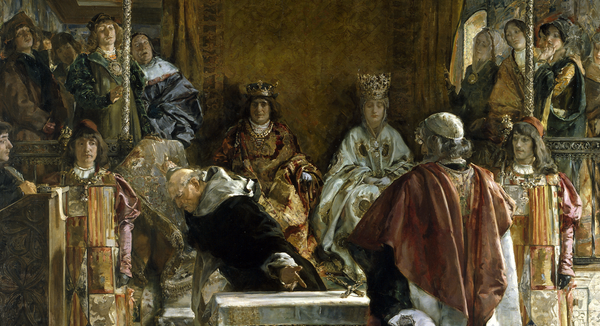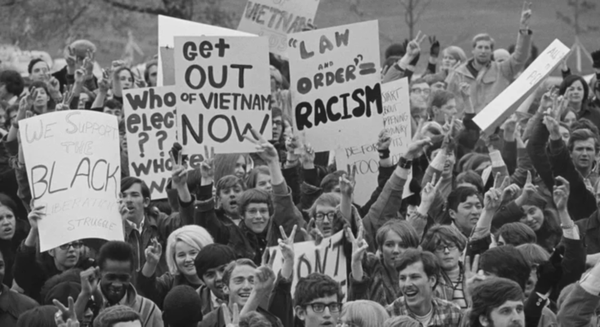The Alt-Right Sold Its Birthright
If Christian Nationalism has any hope of succeeding, it must learn the lessons of the Alt-Right’s failures or repeat history under a different name.

Over the past fifteen years, a small but influential political movement arose in America as a backlash against the far left. Only the most politically ignorant have never heard of the “Alt-Right,” although today the term is more often used as a smear than as a genuine association to an organized political movement. Even among those whose views remain largely unchanged since the term was coined, few still identify with it. Since its peak between 2016 and 2019, the various personalities and organizations of the Alt-Right have tended to drift towards irrelevancy or parody. Today the Alt-Right is, for all intents and purposes, dead. But the legitimate grievances they sought to address remain. Now a new movement is rising: that of Christian Nationalism. When compared to the Alt-Right, it clearly appeals to the same people, seeks parallel goals, and shares similar ill-defined boundaries. But will this fledgling movement pick up the tainted mantle of the Alt-Right and turn it into what it could have been? Will it avoid the pitfalls the Alt-Right fell into, the signs of which are already beginning to form?
The myriad Alt-Right figures who once made headlines with their colorful commentary have largely faded from the public eye, maintaining a core of devoted followers who still hope to bring political resurrection from the graves of a dead movement. Richard Spencer of “Hail Trump” fame is relegated to a small Substack, pushing a pseudo-pagan religion made up out of whole cloth and signaling support for Kamala Harris. The Right Stuff Network, which originated the triple parenthesis meme and many other culturally significant ideas, has seen web traffic decline by almost 90% between February 2017 and September 2021. Andrew Anglin of the Daily Stormer has essentially announced his retirement. Jason Kessler and Christopher Cantwell, key figures in the 2017 Unite the Right rally, are largely forgotten. VDARE has suspended operations. The Traditionalist Workers Party, Identity Evropa, The National Justice Party, and many other organizations have dissolved, splintered, or remain only as shadows of their former selves. No unified, overarching political movement remains. And yet very few people who formed those groups have changed their minds.
The system’s opposition to these forces generally falls into two categories: lawfare and de-platforming. All of the mentioned men have suffered under the judicial system, some even in prison. VDARE explicitly cites spending upwards of a million dollars on legal compliance with an investigation despite not being charged with any crime. Meanwhile, the de-platforming comes from many angles and sources. A Google search for most of the above groups and people reveals a slew of ADL and SPLC articles first, and you’ll be lucky if their official websites are listed at all. Credit card processors, banks, website hosting services, and social media companies of all types have refused to serve White Nationalists, making growth and income increasingly unlikely. Groups like Patriot Front and the Active Clubs, publications like American Renaissance, and companies like Antelope Hill Publishing have been among the few exceptions to this trend. While the external impact has been significant, internal matters can just as easily make or break an organization.
There is no single cause to be blamed for the failure of Alt-Right influencers and coalitions, but there is a clear pattern running through the decline: that of misplaced pride. Arrogance leads to constant infighting, sexual scandals, and running with foolish or outdated ideas despite all signs pointing against you. While this isn’t universal, it is certainly a common thread. What’s more, while a slight majority of the men who filled the ranks of the Alt-Right were Christian, their leaders were often anything but. An atheist or pagan cannot be held to Christian values, and may even resent that standard. For the boon of their pride, they have dissolved the massive support that once welled up beneath them. Their birthright has been sold, to no one, to maintain their ego. A far worse deal than a bowl of stew.
That birthright is now sitting in the gutter, although many are not willing to stoop to pick it up. Whoever does must support the Alt-Right’s three primary ideals: anti-degeneracy, White racial advocacy, and opposition to Jewish power. While some modern liberals in our churches may balk at the latter two ideals, anti-degeneracy is an undeniable cornerstone of Christian political involvement. Christians in America have always formed the front lines and strongest opposition against miscegenation, sodomite unions, and transsexualism. Unfortunately, in the early Trump era, the broader Christian right were far more interested in currying favor with foreigners of all dots and stripes than utilizing the common ground they shared with right-wing dissidents.
The Christian response to the Alt-Right was identical to the Liberal response: blanket condemnations, anathemas, and excommunications. One story that illustrates this pattern is that of Andrew Dodson, an advanced nuclear reactor designer who attended the Unite the Right rally. While protesting, Dodson was brutally attacked by antifascists with pepper spray and other weapons. Undeterred, Dodson responded to his attackers by exclaiming, “I forgive you. I love you, and I would rather suffer this way now than for your families and your children to die in the future” (footage included in this tribute). After the rally, his image was erroneously linked to uninvolved people. In an effort to protect them, Dodson revealed his own identity. This led to a cascade of death threats and harassment towards himself, his family, his employer, and anyone else that could be connected to him. After a few months of this onslaught and the following alienation, Andrew Dodson died by his own hand. A comment on his online obituary, nearly five years after his death, reads: “May the white male suicide epidemic continue to increase year over year.”
After hearing the words and actions that preceded his death, it may not surprise you that Dodson was apparently a Christian. He attended Westminster Catawba Christian School and at Unite the Right decried the so-called Christian opposition who wore communist, anti-Christ symbols. So where was the church when this brilliant young man who clearly loved his neighbor was harassed to death? From what I can see, they were absent at best. If we look at similar reactions to harassment campaigns against other right-wing Christians, it would not be unreasonable to assume that church leaders in Dodson’s life aligned with the wicked against their own.
The Alt-Right also failed to protect Dodson, or provide him with an adequate support network after his doxing. Any movement that wants to achieve victory must protect their own. As I write, I’m hearing of a young mother who spoke forbidden words and was subsequently harassed and recorded by a Somalian sex offender. Her fundraiser has since raised hundreds of thousands of dollars. This would have been unthinkable in 2018, when Dodson’s rally attendance cost him his life. Alt-Right ideals are becoming more popular, but that is not a constant we should count on, and our soldiers need more than money to survive. If Christian Nationalism is to be the movement that takes up the Alt-Right’s mantle, it must provide more.
The enemy’s primary tactic through doxing is to draw attention to your views and watch everyone agree how evil you are. In other words: to isolate and destroy. But increasingly, that consensus is breaking down. As simple doxing continues to become less effective, they’ll adjust their tactics—likely in a violent direction. To weather this coming storm, Christian Nationalists must provide a robust and layered community to insulate our vulnerable from the fiery arrows of the enemy. Beyond financial support, a doxing victim must have access to future employment, housing, community support, wise counsel, legal assistance, and even physical protection. Most of this must be local. Anyone involved in public activism should know a few nearby men willing to jump to their aid if antifascist agitators decided to cause trouble. Can your community provide this for you? Can you provide it for others?
In the later years, some Alt-Right organizations were able to provide a semblance of this support, although it was geographically challenged due to the online nature of their growth. Several groups have overcome this by organizing around cities, but for small networks that promote rural living this can be a self-defeating strategy. Successful movements in the past have organized around already-existing infrastructure. Christian Nationalists have this opportunity in spades, with churches and Christian organizations filled with older generations looking to pass the torch, despite the Boomer stereotype. Between your local church, Christian political group, fraternal organization, or homeschooling group, opportunity abounds to build the connections that matter. I have found more Nationalists at church than anywhere else, and I keep finding more. You can too, just be a little open about it.
As the popularity of White racial advocacy and opposition to Jewish power continues to grow, it remains to be seen if the Christian response will remain the same, or if bold men will take up the cause of these legitimate grievances. If Christian Nationalism has any hope of succeeding, it must learn the lessons of the Alt-Right’s failures or repeat history under a different name. In upcoming articles, we will continue to explore the triumphs and failures of the Alt-Right, and how those lessons apply to the Christian Nationalist movement.





